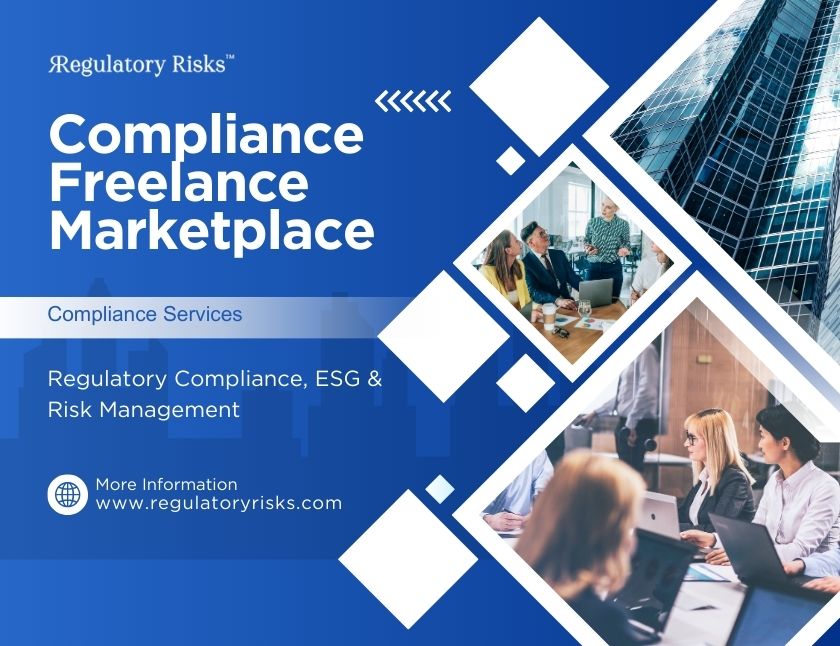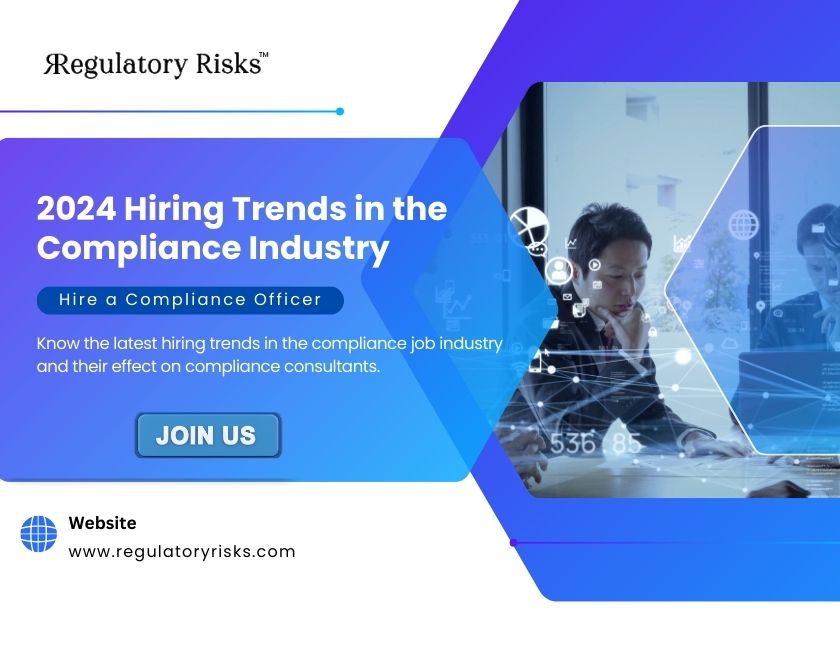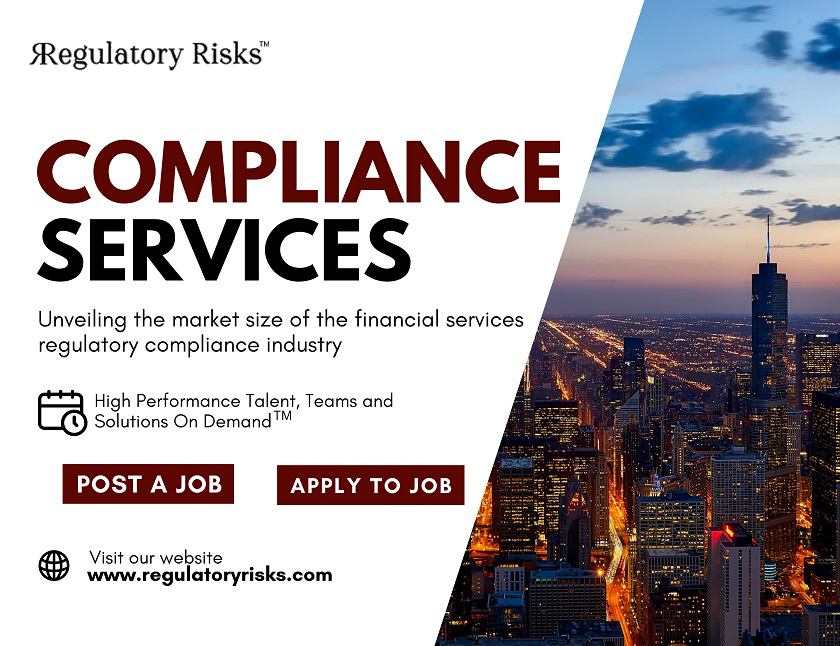In today's fast-paced and interconnected world, small and medium-sized businesses (SMBs) are finding themselves increasingly under the watchful eyes of regulators. Companies in sectors like financial services, crypto and digital assets, gaming, and technology face a labyrinth of regulatory requirements. For SMBs that may lack in-house compliance teams, navigating this complex landscape can be daunting.
This article sheds light on TD Bank’s recent $1.8 billion penalty over anti-money laundering (AML) and financial crime violations. We’ll dig into the reasons behind this record-breaking fine, the lessons SMBs can learn, and how regulatory compliance marketplaces can be essential tools for small businesses to avoid such pitfalls.
TD Bank’s Enforcement Action: A Deep Dive into the $1.8 Billion Penalty
Background on the Case
In October 2024, TD Bank N.A. (TDBNA), a major player in the U.S. banking industry, and its parent company, TD Bank US Holding Company (TDBUSH) found themselves on the receiving end of one of the most severe penalties for Bank Secrecy Act (BSA) violations in history. The bank was slapped with a historic penalty of $1.8 billion, with a staggering $1.3 billion levied by the Financial Crimes Enforcement Network (FinCEN).
This massive fine didn’t arise overnight. It stemmed from years of AML failures that allowed criminals—including international drug traffickers and money launderers—to exploit TD Bank’s services. The bank’s outdated systems and lack of comprehensive compliance measures led to this shocking outcome.
What Led to the Enforcement Action?
Let’s take a closer look at the main factors that led to this enforcement action:
1. Inadequate AML Program: TD Bank's AML program lacked the mechanisms needed to detect suspicious activities effectively. Due to these deficiencies, significant financial crimes went unnoticed for years.
2. Failure to File Currency Transaction Reports (CTRs): The bank repeatedly failed to submit timely and accurate CTRs, which are essential for tracking large cash transactions an oversight that opened the door to money laundering activities.
3. Facilitating Criminal Networks: Over four years, TD Bank's weak compliance framework enabled criminal organizations to process more than $670 million through its accounts, some of which were linked to international drug trafficking.
4. Profit Over Compliance: Despite internal warnings and red flags, the bank prioritized profit and customer convenience over compliance. Budget constraints limited the growth of the compliance department, leaving known risks unaddressed for almost a decade.
5. Outdated Monitoring Systems: TD Bank’s transaction monitoring systems failed to evolve, allowing over 90% of transactions to go unmonitored. As a result, suspicious activity often slipped through the cracks.
Implications for TD Bank
The financial and reputational impacts on TD Bank were substantial, including:
Record-Breaking Financial Penalties: These penalties underscored the severity of TD Bank’s regulatory failures, marking one of the largest BSA fines ever recorded.
Reputational Damage: The public exposure of TD Bank’s regulatory non-compliance harmed its reputation, leading to trust erosion with customers and investors.
Increased Regulatory Oversight: Moving forward, TD Bank will face strict scrutiny from regulators and will need to retain an independent compliance monitor for at least three years.
Operational Overhauls: TD Bank has committed to a comprehensive overhaul of its AML systems, including implementing new transaction monitoring tools and expanding its compliance staff.
Key Lessons for SMBs from TD Bank’s Penalty
1. Compliance as a Priority: Compliance isn't optional. SMBs should embed compliance into their daily operations to avoid severe consequences.
2. Investing in Robust Compliance Programs: TD Bank's failure to properly invest in its compliance infrastructure led to significant liabilities. Investing in AML programs helps organizations keep up with evolving regulatory demands.
3. Proactive Risk Management: A static approach to risk management doesn't work. Regulatory compliance frameworks need to be agile and adaptable to new risks and regulatory changes.
4. Employee Training is Essential: Staff should understand the importance of compliance to detect and report suspicious activity.
5. Leveraging Expert Guidance: SMBs can benefit from Regulatory Compliance Experts and Risk Management Freelancers to identify and address vulnerabilities in their compliance systems.
The Role of Regulatory Compliance Marketplaces for SMBs
Small businesses may not have the budget to maintain a full-scale compliance team. This is where Regulatory Compliance Marketplaces come into play, connecting businesses with on-demand, specialized expertise. Here's how these marketplaces can empower SMBs:
Access to Specialized Knowledge: These marketplaces give SMBs access to experts who understand specific industry regulations, helping them navigate complex compliance requirements.
Cost Efficiency: SMBs can Hire Risk Management Freelancers on an as-needed basis, providing flexible and affordable access to compliance expertise.
Scalability and Flexibility: As SMBs grow, they can scale their compliance resources accordingly, staying responsive to new regulatory challenges.
Trends in Compliance Hiring Among SMBs
SMBs are increasingly turning to these trends to bolster their compliance efforts:
Freelance Compliance Experts: By hiring freelancers, SMBs gain access to top-tier compliance talent without long-term commitments.
RegTech Integration: Technology-driven compliance solutions, such as RegTech, are on the rise, enabling more efficient compliance processes.
Global Regulatory Knowledge: As more SMBs operate internationally, they seek professionals who understand regulatory requirements across different regions.
Navigating Regulatory Compliance in High-Risk Sectors
In high-risk industries like financial services, crypto, gaming, and tech, regulatory compliance is more than just a necessity—it's a critical component of risk management. Here's how businesses in these sectors can fortify compliance to ensure both security and growth.
Financial Services and Asset Management
The financial industry is held to stringent AML (Anti-Money Laundering) and KYC (Know Your Customer) standards, designed to combat financial crimes.
1. Enhanced Due Diligence
For financial institutions, robust due diligence is essential, especially when dealing with high-risk clients. TD Bank's past compliance failures highlight the importance of thorough customer verification processes. By strengthening due diligence, companies can reduce the risk of regulatory penalties and enhance their credibility.
2. Advanced Transaction Monitoring Systems
Real-time monitoring systems are invaluable for detecting suspicious activities. These tools allow businesses to identify and respond to potential money laundering activities as they occur, helping ensure AML compliance and safeguarding the institution's reputation.
Crypto and Digital Assets
The crypto industry faces unique compliance challenges due to its rapid evolution and complex regulatory landscape.
1. Regulatory Flexibility
Staying current on regulatory changes is essential in the digital asset space. As crypto regulations continue to evolve, businesses must adapt quickly to avoid costly compliance issues. Engaging with experts in crypto compliance can help companies stay ahead of regulatory shifts.
2. Robust Compliance Programs
Effective AML and KYC frameworks tailored to the digital asset industry are essential for compliance. By implementing programs designed for the specific risks associated with crypto, businesses can build a secure foundation for sustainable operations.
Casinos and Gaming
Casinos and other gaming enterprises operate in a cash-heavy environment, making them particularly vulnerable to money laundering risks.
1. AML Vigilance
The cash-intensive nature of the gaming industry requires strong AML protocols. Training employees to detect and report suspicious behavior can help mitigate financial crime risks within these establishments.
2. Collaborating with Regulators
Working closely with regulatory authorities not only helps casinos remain compliant but also supports the development of industry standards, fostering a safer gaming environment for both businesses and customers.
Technology Platforms
Tech companies must comply with data protection and privacy laws to build user trust and protect against cybersecurity threats.
1. Data Protection and Privacy Compliance
Adhering to laws like the GDPR and CCPA is crucial for tech platforms, as these regulations safeguard user data and strengthen customer trust.
2. Cybersecurity and Fraud Prevention
Investing in cybersecurity is critical for preventing fraud and data breaches. By building a robust security framework, tech companies can protect themselves and their customers from various cyber threats.
Conclusion
For businesses in high-risk sectors, robust compliance programs are essential for risk mitigation and long-term success. By leveraging advanced monitoring tools, collaborating with regulatory authorities, and investing in compliance technologies, companies can navigate regulatory complexities with greater ease, ensuring a stable foundation for growth and resilience in an increasingly regulated world.




